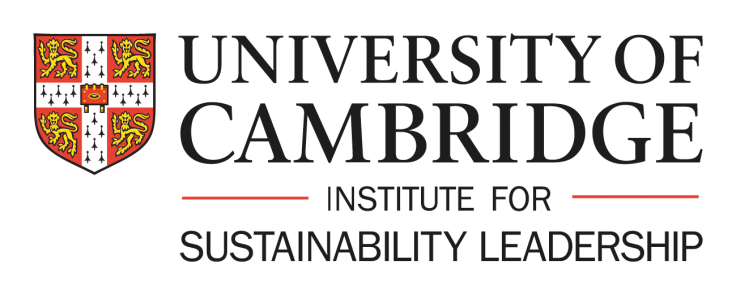How to develop leadership for the new world order
Lindsay Hooper, executive director, education, University of Cambridge Institute for Sustainability Leadership, sees social value as the future benchmark for performance.

In an ever more polarised and divided world, a rare consensus is forming among business leaders. Influential figureheads - from BlackRock's Larry Fink to Unilever's Paul Polman and even the Governor of the Bank of England – increasingly agree: businesses need to move beyond traditional measures of commercial success and make social value the benchmark for performance.
These voices are multiplying as we see growing acceptance that many of the existential threats to society – such as climate change, pollution, resource scarcity, and growing inequality – have been created as by-products of commercial activity.
And as business leaders contemplate how to respond to these challenges and to evolving expectations of business performance, they do so while facing profound social and economic shifts driven by the Fourth Industrial Revolution.
Whether from advances in AI, 3D printing, block-chain and cryptocurrencies, or the exponential growth of knowledge platforms that enable the circular economy and social media, we are already in the process of transformational change.
This change, driven by business innovation, has the potential to deliver the positive future we want, to significantly enhance society and the environment on which it depends and secure the future of whole populations.
But it also has the potential to increase inequality, concentrating power and resources in the hands of the few at the expense of the many, undermining social stability and leading to further fractures in a system that is already under stress.
Change is inevitable, but the outcome of that change is in our hands. And if there is one factor that will determine whether the transition will ultimately prove positive or negative, it is the leadership we create to drive and shape it.
As we hear from Polman, Fink and others, we need a new, purpose-driven leadership. And beyond the need for clarity of purpose, there is also a growing recognition that new capabilities will be required: the ability to collaborate, innovate and adapt, as well as the courage to navigate tough challenges and humility to listen and learn lessons.
But simply acknowledging the need for a new kind of leadership is not sufficient. Although a growing number of businesses acknowledge the need for a new kind of leadership, few are proactive in developing it.
In many cases this is down to a failure of the leadership development industry to focus on developing the kind of leadership we need for the future rather than the kind that was valued in the past. In other cases, it may simply be inertia as the status quo is still too comfortable.
But it is also because we have collectively hung our hopes on breakthrough technologies, or global agreements, to deliver the change we need. Even leading businesses are slowly waking up to the fact that the challenge we face is not a technology challenge but a leadership challenge. And this is not just a challenge of identifying heroic leaders to inspire us from their pedestals, but a challenge of building leadership capacity right across organisations to navigate tough dilemmas, to build the necessary collaborations, to innovate and to act with courage, resilience and humility to shape the future we need. As Mark Carney highlighted in a speech at Regent University last week, the single most important leadership action is identifying and developing the right people.
Our work at the Cambridge Institute for Sustainability Leadership (CISL) with leading international business over the last 30 years has given us significant insight into the challenges inherent in developing and delivering purposeful leadership. The Cambridge Impact Leadership model, outlined in a new report, offers a roadmap for the kind of ambitious transformation we need if our global economy – and planet - is to survive and thrive.
As more and more business leaders acknowledge their responsibilities beyond commercial success, now is the time to develop ways of shaping and responding to this. By equipping business leaders with the ability to nurture innovation and manage risk as well as influence their commercial contexts and systems, we can hope deliver on broader societal goals.





















